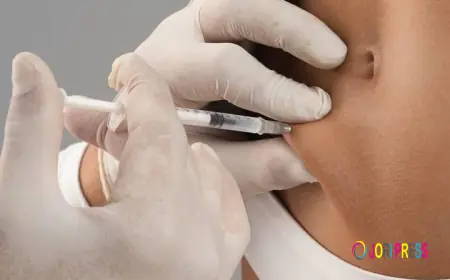A Closer Look at Inpatient Behavioral Health Programs
When a mental health crisis or severe behavioral health condition arises, a higher level of care may be necessary.
When a mental health crisis or severe behavioral health condition arises, a higher level of care may be necessary. This is where inpatient behavioral health programs come in. Unlike outpatient services, which involve regular appointments while living at home, inpatient programs require you to reside at a treatment facility. This immersive approach provides a safe, structured, and supportive environment for healing.
Who Benefits from Inpatient Care?
Inpatient programs are designed for individuals who need constant supervision and intensive treatment. This may include people who are:
-
Experiencing a mental health crisis or severe symptoms that make it difficult to function.
-
At risk of self harm or suicide.
-
Needing medical detoxification for substance use disorders.
-
Dealing with co-occurring mental health and substance use disorders.
-
Unstable and unable to find safety or support in their home environment.
The primary goal of inpatient care is to stabilize a person's condition and provide them with the tools and skills they need to transition to a less intensive level of care.
What to Expect in an Inpatient Program
A stay in an inpatient program is a structured experience, with a daily schedule designed to promote recovery and well-being. While each facility is different, you can generally expect a comprehensive treatment plan that includes:
-
24/7 Care and Supervision: A team of medical professionals, including psychiatrists, nurses, and therapists, is available around the clock to provide support and ensure your safety.
-
Individual Therapy: You will have regular one-on-one sessions with a licensed therapist to address your specific challenges and develop personalized coping strategies.
-
Group Therapy: Group sessions are a core component of inpatient care. They provide a space to connect with peers, share experiences, and learn from one another in a supportive setting.
-
Medication Management: Psychiatrists will work with you to find the right medication and dosage to help manage your symptoms effectively.
-
Holistic Therapies: Many programs offer a range of activities like art therapy, recreational therapy, and mindfulness exercises to promote overall wellness.
-
Aftercare Planning: A crucial part of the inpatient process is creating a plan for what happens after you leave the facility. This may involve referrals to outpatient therapy, support groups, or other community resources to help you maintain your progress.
The Benefits of a Structured Environment
The controlled and supervised setting of an inpatient program is one of its greatest advantages. It minimizes external triggers and distractions from daily life, allowing you to focus solely on your recovery. The structured routine helps to establish a sense of normalcy and discipline, which can be incredibly therapeutic. This intensive, focused care often leads to significant progress in a short amount of time, setting a strong foundation for long-term recovery.
What's Your Reaction?
 Like
0
Like
0
 Dislike
0
Dislike
0
 Love
0
Love
0
 Funny
0
Funny
0
 Angry
0
Angry
0
 Sad
0
Sad
0
 Wow
0
Wow
0

















































